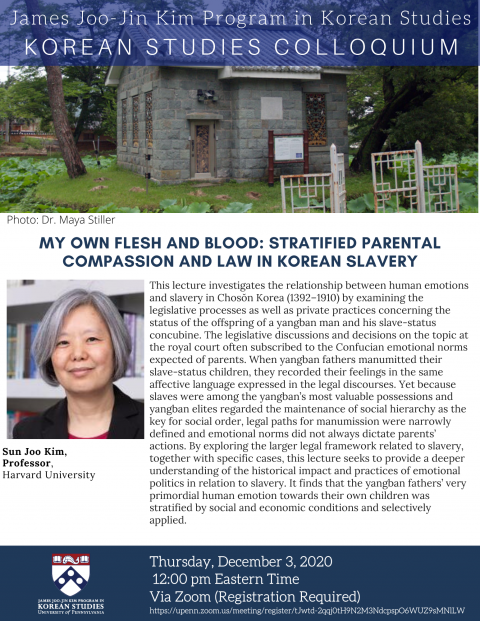
Korean Studies Colloquium
Via Zoom
*Registration required: please register via the following link: https://upenn.zoom.us/meeting/register/tJwtd-2qqj0tH9N2M3NdcpspO6WUZ9sMNlLW
This lecture investigates the relationship between human emotions and slavery in Chosŏn Korea (1392–1910) by examining the legislative processes as well as private practices concerning the status of the offspring of a yangban man and his slave-status concubine. The legislative discussions and decisions on the topic at the royal court often subscribed to the Confucian emotional norms expected of parents. When yangban fathers manumitted their slave-status children, they recorded their feelings in the same affective language expressed in the legal discourses. Yet because slaves were among the yangban’s most valuable possessions and yangban elites regarded the maintenance of social hierarchy as the key for social order, legal paths for manumission were narrowly defined and emotional norms did not always dictate parents’ actions. By exploring the larger legal framework related to slavery, together with specific cases, this lecture seeks to provide a deeper understanding of the historical impact and practices of emotional politics in relation to slavery. It finds that the yangban fathers’ very primordial human emotion towards their own children was stratified by social and economic conditions and selectively applied.
 James Joo-Jin Kim Center for Korean Studies
James Joo-Jin Kim Center for Korean Studies